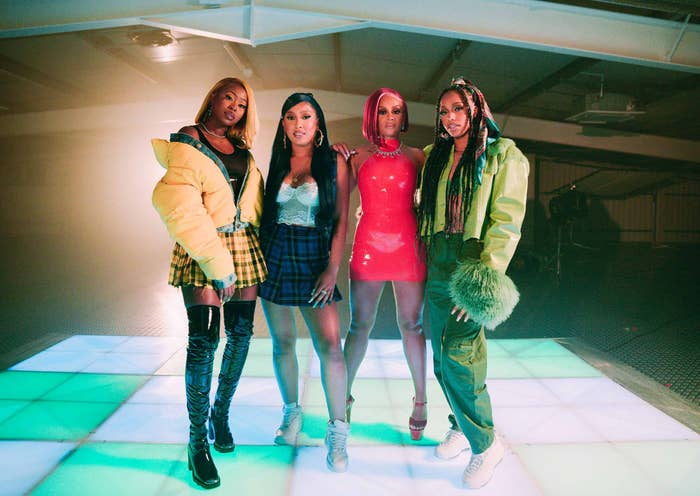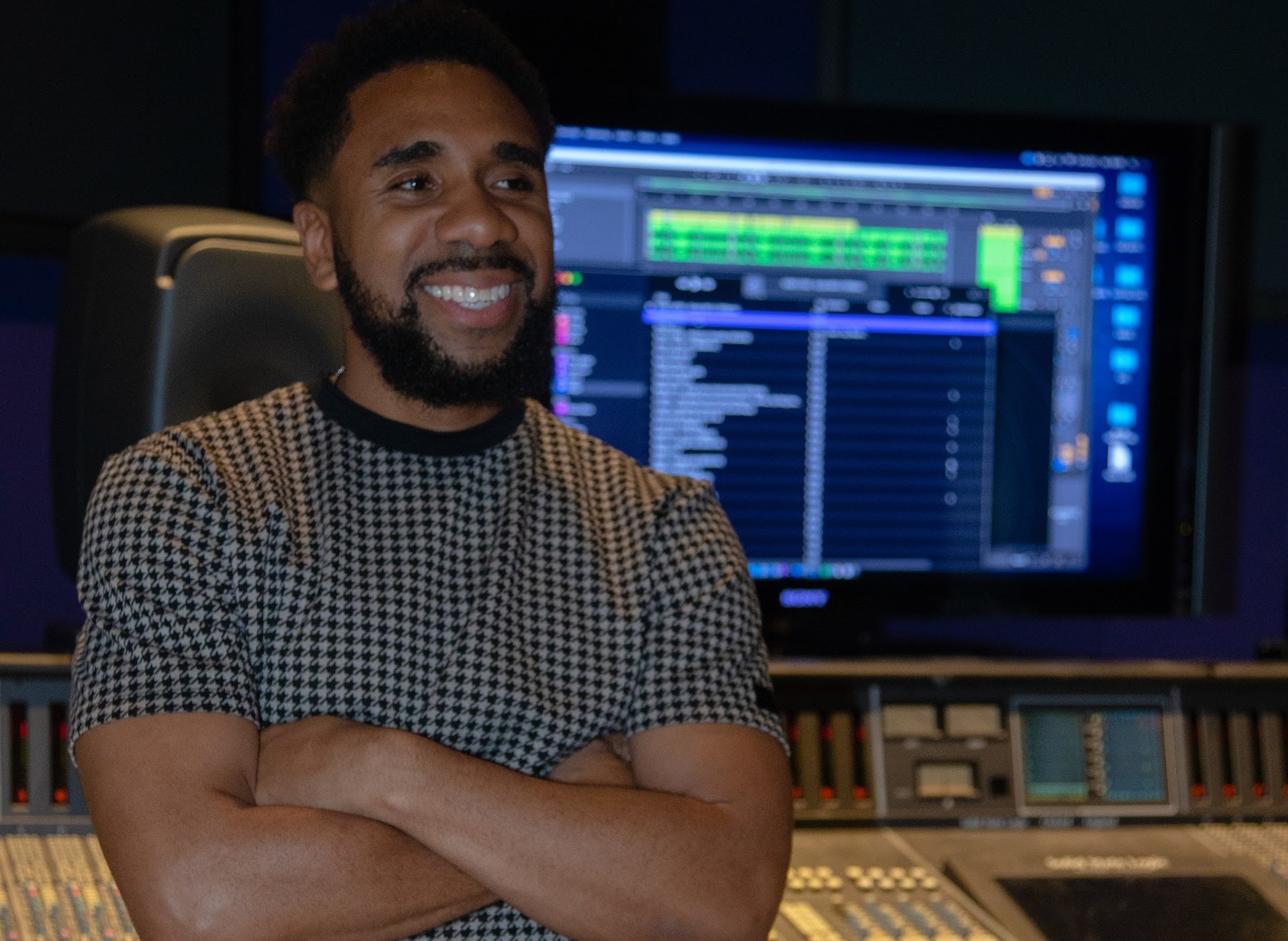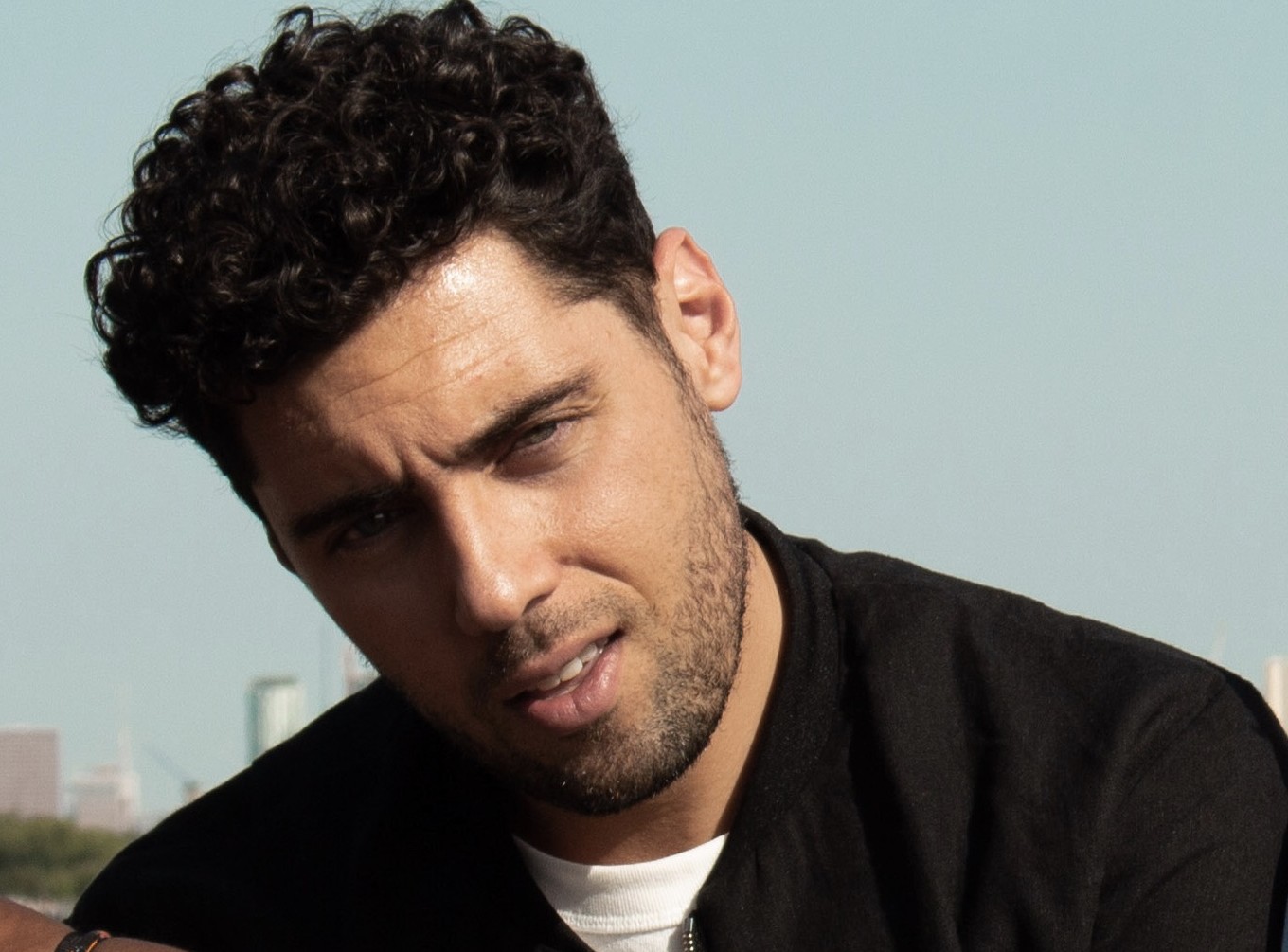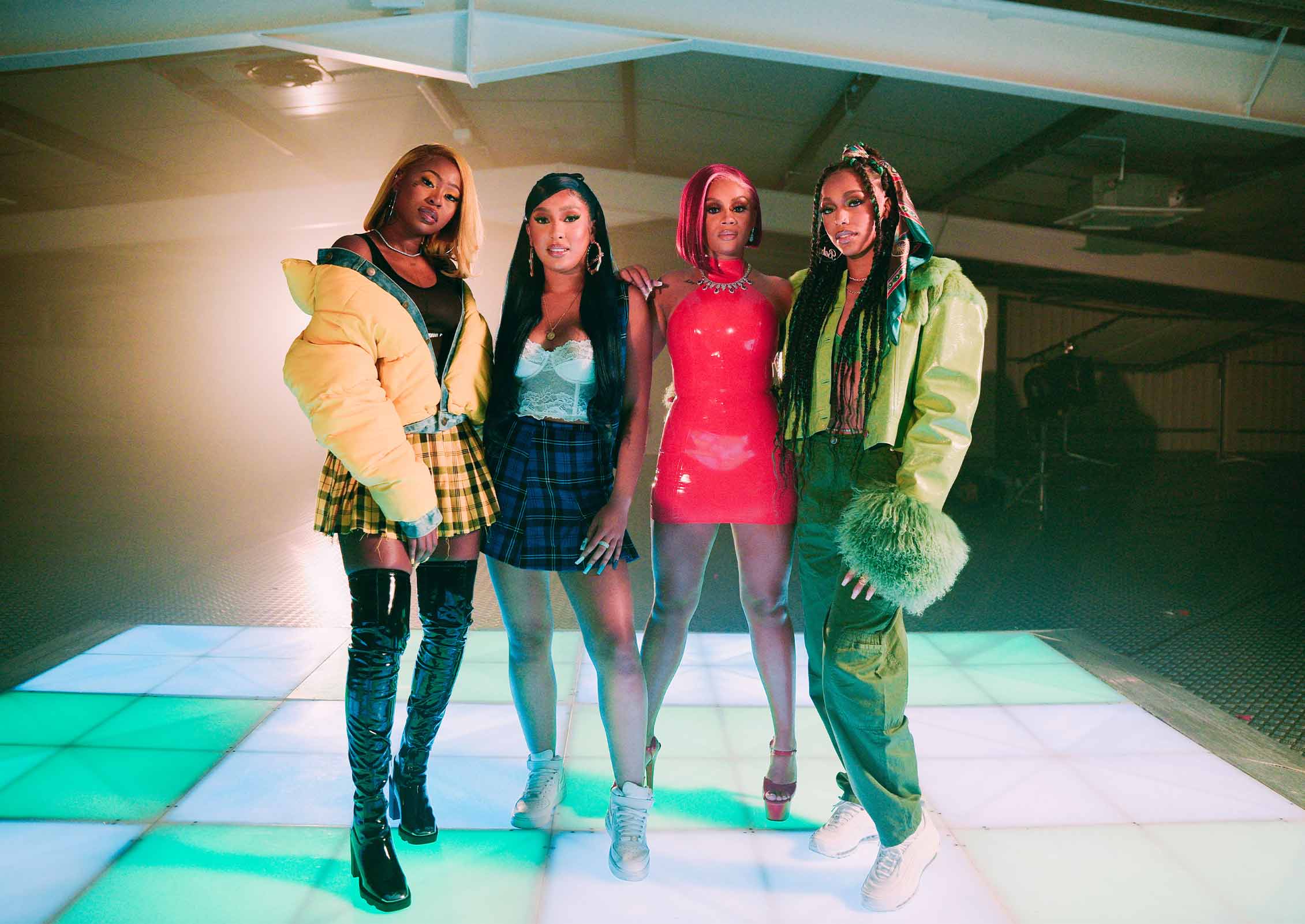
Over the years, there have been many widely-held beliefs surrounding the influence and impact of British R&B. There’s no denying that there’s been a wealth of artists that have flourished and helped create an ecosystem for the sound to thrive today—its success has mostly been confined to the underground, but in the ‘80s and ‘90s, there was an explosion through acts such as Mica Paris, Omar, Loose Ends, Soul II Soul, David Grant and Wayne Marshall. A lot of these names you’ll still hear today, but due to the genre’s fragmented and disjointed history in the UK when it comes to its documentation, it’s been difficult to connect the dots between eras.
Today, though, R&B from the UK is flourishing once again, and for a myriad of reasons. Artist-friendly platforms (see: SoundCloud) created environments where they could directly interact with fans and, in turn, audiences became loyal supporters to the point some released their own projects. There has been less reliance on labels to facilitate the development of an R&B scene—particularly when they’ve historically been ill-equipped to sell the genre—with artists building foundations in the underground, combined with the functionality and current trend of playlists allowing fans to curate sounds. Ultimately, artist development has played a fundamental role in the growth of R&B in recent years, which has seen the likes of Ella Mai go from budding X Factor hopeful to having the biggest R&B record in the world in 2017.
A&R execs and managers have also been pivotal in the promise British R&B has shown. Taking risks and looking towards artists who have a unique voice and story to tell has led the scene to where UK R&B is playlisted alongside what we hear from the States. Complex spoke with some of those A&R execs and managers, who have worked with the likes of Tiana Major9, Rebecca Garton, Scribz Riley, Bellah, JVCK James and Tiana Blake, to find out how British R&B grew new wings.
Sam Adebayo (Senior A&R Manager, Universal Music)

Represents: Rebecca Garton
“Everything feels promising now in R&B because of the variety out there and the diversity in sound. I have a friend who works in a school and he tells me that young people are listening to a lot more R&B than they used to. Obviously, rap is still prominent, but R&B isn’t this dirty word in the playground anymore and that’s where you start to find out how popular a sound or artist is. If they’re playing it in the playground, you’ve done the hard work. The issue before wasn’t that the artists weren’t there—they were, because I grew up on the Lisa Stansfields, Lynden David Halls and Floetrys—but the visibility wasn’t always there. Now it’s a case of everyone just wanting to break through together instead of one by one. You don’t have to think hard to find a good R&B record these days and that’s one of the big differences.
“Rebecca Garton is someone that I’ve been working with for a while, and we’ve spent the better part of two years just working and developing. Labels haven’t been giving artists time to grow but they need that to work themselves out and these things take time, especially in a country where R&B isn’t the most popular genre. Rebecca did a record with Jeremih and it was an important move because it gave her exposure to a bigger audience in the US. That then led to her working with Ling Hussle, Alana Maria and Tia Carys for the track ‘All Me Pt. 2’, which felt like a real moment; it showed people that R&B can still have an old-school feel to it and it can still be relevant.”
Barry Burt (Founder, Lost Ones Recordings)

Represents: Tiana Blake
“I started out in the music industry around 15 years ago as an R&B DJ on BBC Radio 1Xtra, so I’ve always been a champion and advocate for R&B, but more specifically, R&B from the UK. This was around 2005-2009, and I remember it being so difficult for R&B to get any love from labels and mainstream radio. There was little belief in it across the board, outside of some specialist radio and key press publications. Now I run Lost Ones Recordings, which is a boutique label with EMI that focuses on artist development and being a creative hub for Black music, and, unintentionally, we have honed in on R&B. I think one of the problems the genre has always faced is that there was always a distinction between R&B and ‘UK R&B’. It was almost looked at as a separate genre. When R&B from the UK did work, it either took influence from British underground culture—like Ms Dynamite and Craig David did with UKG—or was packaged in shiny pop production, i.e. Taio Cruz, in order to find its way through the door.
“The great thing about where we are now, in 2021, is that artists no longer need to do that to break through. It’s taken years of artist development from people behind the scenes, shifts in youth culture, and I think more importantly, supporters at radio, streaming platforms and press. For most of my time in music, there was never a strong ecosystem for R&B. We’ve always had platforms for grime and rap, like GRM and SBTV, but never an R&B equivalent. Now, though, we have huge platforms like COLORS shining a light on UK R&B talent alongside US counterparts; dedicated R&B playlists at Apple, Spotify and YouTube, which are growing fanbases and followers; and executives in positions of influence that care and understand R&B and can develop the artists correctly. But, most importantly, the talent speaks for itself. There’s an incredible crop of artists that proudly wear the R&B moniker now and they’re being nominated for Grammys, getting millions of streams on songs, and touring the world.”
Anthony Layiwola (Manager & Founder, Base N Rebulz Entertainment)

Represents: Bellah
“Where we are today, where we have R&B playlists across digital streaming platforms, shows how far it’s come in the past few years. More importantly, the quality of the music is high and we’ve come into a place where the artists have taken time to understand and hone their craft. They’re not following sounds or emulating what’s popping in the US; it really sounds like their own story, sound and culture at the moment. There’s a culture to R&B now, especially when you look at what people are talking about online, the memes, who people are listening to when they’re out and on playlists, and I think that’s really helped it grow. It’s no longer a case of just relying on radio and that’s not to say it hasn’t been beneficial, but people value the idea of curating their own music.
“Distribution was always the issue when it came to Black British music and it was difficult to get your music into people’s ears. But with the rise of platforms like SoundCloud, Spotify and Apple Music, distribution is now in the control of the artist, to a degree. Artists aren’t waiting to be told that there isn’t an audience for their sound—they’re creating from their bedrooms and uploading it online, hoping to be paid, and there’s a real ecosystem and economy around R&B. Looking at how clubs were and how pivotal they were in Black music, R&B has been here but in different forms such as garage, house, UK funky and even some Afroswing. These were the forms of R&B back then but nowadays you can play it however you want to play it—whether it’s in the car, at the club, at home or at house parties. It’s refreshing working with artists like Bellah because the quality of her writing is immense. The community of musicians, producers and writers she’s built around her is a testament to the growth of R&B too; there’s a lot of collaboration, which is only pushing things forward.”
David Orelaja (Artist Manager, Left Lane Management)

Represents: Tiana Major9
“I feel like this period of change within R&B has been brewing for the past few years. There are a lot of contributing factors to it; I feel like the artists are owning their R&B sound, and a lot of it has gone back to that traditional format. That’s helped them over in the US because they don’t feel as though they have to emulate as a foundation’s been built here. You now have artists who are just as good as the H.E.Rs and Jazmine Sullivans, and the great thing about it is that people know about them. The fact that you can be listening to the hottest R&B artist in the world and then the next song is a Bellah, JVCK JAMES or Tiana Blake track is a contributing factor because playlists are how people are mostly listening to music now.
“20 years ago, acts like Damage didn’t really have that opportunity and had to rely on traditional radio, which was very difficult to get on. There were acts that crossed over, like Shola Ama and Craig David, but they never really had the ecosystem that R&B has now and that would’ve made a big difference in terms of how people look back on the history of the scene here. I feel that we’re seeing that UK R&B no longer has to have that ‘UK’ in it, and that’s because there’s been a real community of artists here who have helped grow it. A lot of these artists are at the level where they can compete with the US and that’s not to say that we’re in their shadow, but that market dictates so much of what we listen to in R&B, it used to be hard to get it from anywhere else.”
Carlyn Calder (Artist Manager, Vibeout)

Represents: Scribz Riley
“I’ve always been an R&B head, and when I moved to London from Scotland, I got a job at Sony ATV in music publishing. I became an A&R at a time when people were starting to pay attention to artists like SZA and PARTYNEXTDOOR, and platforms like Soulection, who I was involved with in the early days. It was around then that there was a real ‘future R&B’ sound being created and rap was already doing really well here. When I started managing Scribz Riley, he was making pop music at the time, which a lot of the R&B songwriters of today were doing as they needed a way of paying the bills. But I’ve always been a big believer in encouraging people to focus on what they truly love, so we put our heads together and started veering more towards the R&B sound he was really passionate about. We revamped the whole sound and tried to push him as an R&B producer. Then we signed J Warner, and this was a guy that I was adamant about keeping around because his writing is phenomenal, and it was the same with JVCK JAMES.
“But it was very hard to get the R&B signings through the door because the UK rap scene was flourishing and they weren’t too sure where R&B was going to go. It got to a point where all I wanted to do was develop R&B artists as labels were so focused on throwing money at rap and it started to get diluted a bit because it was a guaranteed winner. At the end of 2018, I set up my own management company and the whole roster is pretty much R&B. I felt that development was something that was really missing and it was important for me to create a space to allow artists to experiment. There’s a whole scene that labels had been ignoring because they never understood how to sell and market it, and how to develop sounds. It’s changed a lot now, though, because artists have started to realise that they actually don’t have to rely on major labels.”
David Aghedo (Senior A&R Manager, Atlantic Records)

Represents: Alana Maria
“R&B from the UK has progressed in a lot of ways, but I think what I’ve noticed especially is that Black female vocalists have been getting more of a look-in than they used to. It’s not perfect but there was a time where—unless it was through Britain’s Got Talent or for a dance record—it was hard for Black women to get a foothold within R&B here. When I signed Alana Maria in 2018, I was passionate about developing and breaking a Black female in R&B because there definitely has been an imbalance over the years. It felt as though women in music were really claiming a space for themselves and this was post-Cardi B and Jorja Smith, so it was a really great time for women to step up to the plate, which they have done.
“Now, though, I think it’s about developing some serious R&B stars that can rival artists such as Kehlani, who is signed to Atlantic. That will only be a good thing for everyone if there are more artists thriving on an international stage. With Alana, she has an amazing voice and tone and she’s someone that started building her fanbase long before she was signed. She was doing covers, performing across London and she was connecting with different audiences, and that gave her the platform that led to her being signed. Which is what we’re seeing a lot more of now—more and more R&B acts getting signed, because labels have recognised that they have a foundation that they’ve been building themselves.”

